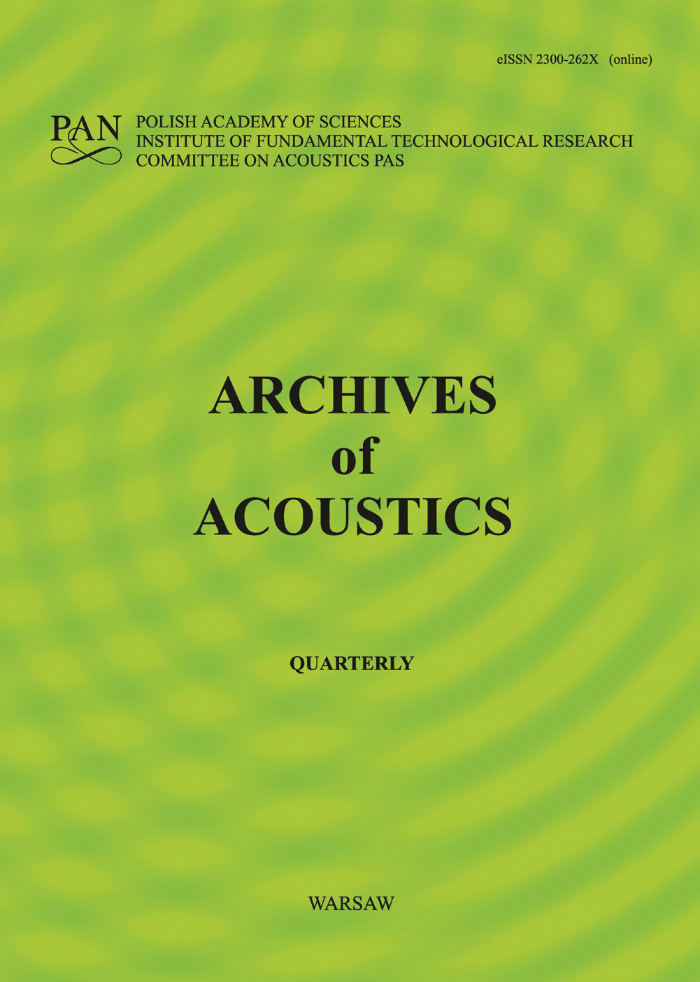Other articles by the same author(s)
- Roman GOŁĘBIEWSKI, Simple methods for determination of the acoustical properties of ground surfaces , Archives of Acoustics: Vol. 32 No. 4 (2007)
- Roman GOŁĘBIEWSKI, Rufin MAKAREWICZ, Verification of two methods of railway noise propagation , Archives of Acoustics: Vol. 34 No. 2 (2009)
- Rufin MAKAREWICZ, Roman GOŁĘBIEWSKI, The Uncertainty of Noise Composed of Separate Sound Events , Archives of Acoustics: Vol. 41 No. 1 (2016)
- Roman GOŁEBIEWSKI, Andrzej WICHER, Artur DURAJ, Milena KACZMAREK-KLINOWSKA, Karina MRUGALSKA-HANDKE, Objective and Subjective Assessment of the Sound Attenuation Efficiency Obtained by Custom Moulded Earplugs with Various Acoustic Filters – a Preliminary Study , Archives of Acoustics: Vol. 47 No. 2 (2022)


